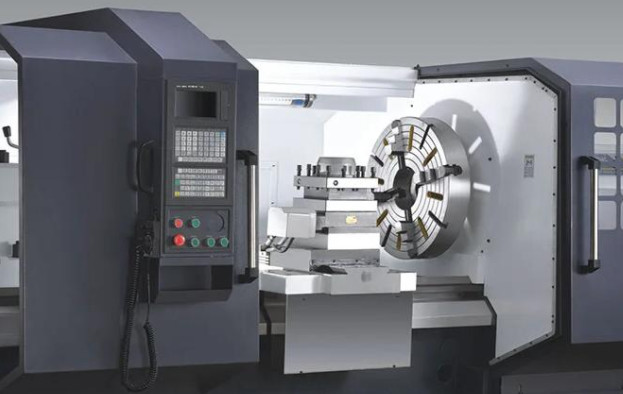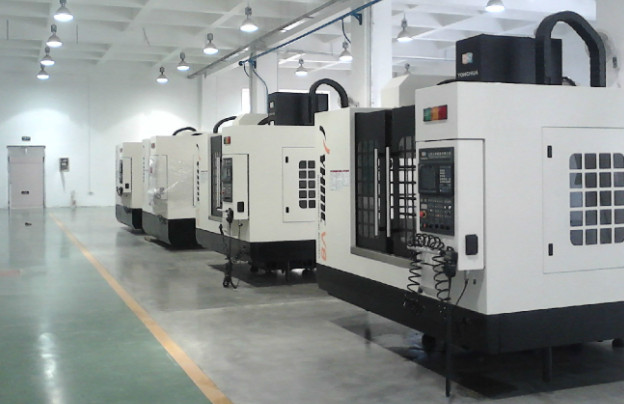Computer Numerical Control (CNC) machines are essential tools in modern manufacturing, particularly for metalworking. These machines offer precision, efficiency, and automation, making them invaluable for industries like aerospace, automotive, and fabrication. However, the cost of a CNC machine for metal can vary significantly, ranging from a few hundred dollars for hobbyist models to over $500,000 for industrial-grade equipment. This guide provides a comprehensive overview of the factors influencing CNC machine prices, the types of machines available, their applications, and practical considerations for choosing the right one.
Factors Influencing the Cost of CNC Machines for Metal
Several key factors determine the price of a CNC machine for metal. Understanding these can help you make an informed decision based on your budget and requirements.
Machine Type and Functionality
Different CNC machines serve distinct purposes, such as milling, turning, cutting, or grinding. Each type has unique features that affect its cost. For example, CNC mills are generally more expensive than CNC routers due to their ability to handle complex metalwork with higher precision. Similarly, machines with multiple axes (e.g., 5-axis) cost more than 3-axis models because of their advanced capabilities.
Size and Work Envelope
The physical size of the machine and its work envelope (the maximum dimensions it can handle, measured in X, Y, and Z axes) significantly impact the price. Larger machines designed for bigger workpieces, such as those used in aerospace, cost more due to their robust construction and larger servo motors. For instance, a desktop CNC mill might have a work envelope of 12” x 12” x 6”, while an industrial mill could handle 60” x 30” x 24”.
Precision and Tolerance
Metalworking often requires tight tolerances, sometimes as precise as ±0.0001 inches. Machines capable of such accuracy use advanced components like high-precision ball screws and linear guides, increasing their cost. High-end models from brands like Haas or DMG MORI are engineered for superior precision, which justifies their higher price tags.
Power and Speed
The spindle’s power (measured in horsepower or kilowatts) and speed (revolutions per minute, RPM) influence a machine’s ability to cut through tough metals like steel or titanium. High-power spindles and rapid motion speeds (up to 1,000 inches per minute) enhance efficiency but add to the cost. For example, a 15-horsepower spindle is more expensive than a 5-horsepower one.
Brand and Reputation
Well-known manufacturers like Haas, DMG MORI, and Mazak produce reliable, high-quality machines with robust support, but their products are pricier than lesser-known or Chinese-made alternatives. Brand reputation often correlates with durability, precision, and after-sales service, which can justify the investment for professional shops.
Additional Features
Optional features like automatic tool changers, coolant systems, and advanced software (e.g., CAD/CAM integration) increase costs. For example, a CNC mill with an automatic tool changer can add $5,000–$20,000 to the price, depending on the number of tools it supports.
Material Compatibility
Machines designed for metals like stainless steel or titanium are more expensive than those for softer materials like aluminum or wood. Metalworking requires sturdier frames and more powerful spindles to handle the material’s hardness, contributing to higher costs.

Types of CNC Machines for Metal and Their Price Ranges
CNC machines for metal come in various types, each suited to specific tasks. Below is a detailed breakdown of common machine types and their typical price ranges in recent years.
| Machine Type | Typical Price Range | Applications | Examples |
|---|---|---|---|
| CNC Router | $500–$50,000 | Cutting soft metals (aluminum, brass), engraving, prototyping | Shapeoko, X-Carve, BobsCNC |
| CNC Mill | $10,000–$500,000 | Milling, drilling, tapping complex metal parts | Haas TM-3P, DMG MORI, Tormach |
| CNC Lathe | $10,000–$300,000 | Turning cylindrical parts, threading, boring | Tormach 8L, Mazak, Okuma |
| CNC Plasma Cutter | $5,000–$100,000 | Cutting metal sheets and plates | Hypertherm, Torchmate, ESAB |
| CNC Laser Cutter | $20,000–$500,000 | Precision cutting of metal sheets | Trumpf, Bystronic, Amada |
| CNC Grinder | $20,000–$300,000 | Precision grinding, surface finishing | Studer, Okamoto, ANCA |
CNC Routers
CNC routers are versatile machines suitable for cutting softer metals like aluminum, brass, and copper. Entry-level models, such as the Shapeoko or X-Carve, cost $500–$5,000 and are ideal for hobbyists or small workshops. Mid-range routers ($5,000–$50,000) offer greater rigidity and can handle light metalwork for small businesses. However, they lack the precision and power for heavy-duty metal machining.
CNC Mills
CNC mills are the backbone of metalworking, capable of cutting, drilling, and shaping complex parts. Entry-level mills, like the Tormach 1100MX, start at $10,000–$30,000 and suit small shops. Mid-range mills ($30,000–$100,000) offer improved precision and larger work envelopes, while high-end models ($100,000–$500,000) from brands like Haas or DMG MORI are used in large-scale manufacturing.
CNC Lathes
CNC lathes are designed for turning cylindrical parts, such as shafts or bolts. Entry-level lathes cost $10,000–$30,000, suitable for basic tasks. Mid-range ($30,000–$100,000) and high-end ($100,000–$300,000) lathes offer advanced features like multi-axis capabilities and higher spindle speeds for complex turning operations.
CNC Plasma Cutters
Plasma cutters use a high-velocity jet of ionized gas to cut metal sheets. Entry-level models ($5,000–$30,000) are suitable for small fabrication shops, while mid-range ($30,000–$100,000) and high-end ($100,000–$500,000) cutters offer greater precision and larger cutting tables for industrial use.
CNC Laser Cutters
Laser cutters use a focused beam to cut metal with high precision. Entry-level models ($20,000–$50,000) handle thin sheets, while mid-range ($50,000–$200,000) and high-end ($200,000–$500,000) cutters can process thicker materials and offer advanced features like automated material handling.
CNC Grinders
CNC grinders are used for precision grinding and surface finishing. Prices range from $20,000 for entry-level models to $300,000 for advanced configurations, depending on the machine’s ability to achieve tight tolerances and handle specific metals.
Additional Costs to Consider
Beyond the machine’s purchase price, several ancillary costs can impact your budget. These include:
- Tooling and Accessories: End mills, drills, collets, and vises can cost $500–$5,000, depending on the machine and application.
- Software: CAD/CAM software like Fusion 360 or MasterCam costs $500–$27,000 annually, depending on the license type.
- Setup and Installation: Rigging and site preparation for industrial machines can cost $1,000–$10,000, especially for heavy equipment requiring specialized crews.
- Maintenance: Regular maintenance, including lubricants and part replacements, can cost $1,000–$10,000 per year.
- Training: Operator training, either in-house or through the manufacturer, may cost $500–$5,000.
- Material Costs: Metals like titanium or stainless steel are pricier than aluminum, affecting overall project costs.
How to Choose the Right CNC Machine for Metal
Selecting the appropriate CNC machine requires balancing your needs with your budget. Consider the following steps:
Define Your Requirements
Identify the metals you’ll work with (e.g., aluminum, steel, titanium), the size of your workpieces, and the required precision. For example, a small shop machining aluminum parts may only need a $10,000 CNC router, while a factory producing aerospace components might require a $200,000 5-axis mill.
Evaluate Machine Specifications
Check the machine’s spindle power, RPM, work envelope, and axis configuration. For instance, a 5-axis mill with a 20-horsepower spindle and 30,000 RPM is suitable for complex, high-precision parts but costs significantly more than a 3-axis model.
Consider Brand and Support
Opt for reputable brands with reliable customer support and warranty policies. While Chinese-made machines are cheaper, they may lack the durability or service of established brands like Haas or Mazak.
Assess Total Cost of Ownership
Factor in not just the purchase price but also tooling, software, maintenance, and training costs. A cheaper machine may lead to higher long-term expenses due to frequent repairs or limited capabilities.
Explore Financing Options
Many suppliers offer financing to spread the cost over time. For example, a $50,000 machine might be financed with monthly payments of $1,000–$1,500, making it more accessible for small businesses.
Cost-Saving Tips for CNC Machine Purchases
To maximize value, consider these strategies:
- Buy Used Machines: Reputable dealers sell refurbished CNC machines at 20–50% less than new ones, often with warranties.
- Optimize Material Use: Design parts to minimize waste, reducing material costs. Consult with your supplier for efficient layouts.
- Choose Simpler Machines: Avoid overbuying features you don’t need, such as 5-axis capabilities for simple parts.
- Batch Production: Producing larger quantities spreads setup costs, lowering the cost per part.
- Negotiate with Suppliers: Many dealers offer discounts or bundle tooling and software with the purchase.
Conclusion
The cost of a CNC machine for metal depends on factors like type, size, precision, and features, with prices ranging from $500 for hobbyist routers to over $500,000 for industrial mills or laser cutters. By understanding your needs, evaluating specifications, and considering total ownership costs, you can select a machine that balances performance and budget. Whether you’re a hobbyist or a professional manufacturer, this guide provides the insights needed to make an informed investment in CNC technology.
FAQs About CNC Machine Costs for Metal
What is the cheapest CNC machine for metal?
Entry-level CNC routers, like the Shapeoko or X-Carve, start at $500–$5,000 and can cut soft metals like aluminum. However, they may lack the precision for professional applications.
How much does an industrial CNC mill cost?
Industrial CNC mills range from $30,000 for mid-range models to $500,000 for high-end, multi-axis machines used in aerospace or automotive industries.
Are there hidden costs when buying a CNC machine?
Yes, hidden costs include tooling, software, maintenance, training, and installation. These can add 50–100% to the machine’s base price.
Can I finance a CNC machine?
Yes, many suppliers offer financing options with monthly payments, making it easier for small businesses to afford mid-range or industrial machines.
